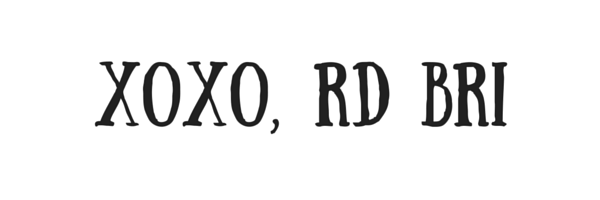Subscribe to our newsletter!
Whether you’re just getting started or fully experienced with a healthy lifestyle, we all know that challenges arise on everyone’s health journey. We’re surrounded by cheap junk food at the grocery store, fast food is on every corner, and you can find donuts and cookies everywhere you turn at school or work. While you might not have complete control over these obstacles, you can certainly overcome them. Believe it or not, there are a few challenges that you can control. Ridding the things I have listed below from your daily habits will help you with long-term success. You might be surprised by a couple, as they are commonly emphasized as important by the health and fitness industry and many conventional healthcare practitioners. However, we find our clients to be happier and healthier overall when they shift their focus from these concepts and rather pay attention to nourishing their bodies with real, whole foods and exercising in a way that feels good for them.
So, without further ado, I bring you 5 things to get rid of on your health journey.
Restriction. If you’ve tried any type of fad diet in the past, you probably know that restriction just doesn’t work. Whether that means restricting treats or an entire food group, depriving yourself of the foods you love will set you up for failure. Most people find that if they restrict too much, they end up overeating and possibly binging on the foods they have been avoiding. It’s much easier to get on a plan that allows you to enjoy the foods you love in balance with a real-food-based diet. This can seem overwhelming at first which is where health coaching can come in handy. We can teach you how to apply this concept to your lifestyle so “deprived” makes its way out of your vocabulary.
Fitness Magazines. The media bombards us with way too much information these days, which makes it incredibly difficult to figure out what’s healthy and what’s not (unless you talk to a daily dose dietitian, of course). While fitness and health magazines have somewhat improved with this, they’re still often guilty of depicting nutrition misinformation. They can also convey false messages about what it actually means to be healthy. Now, if you’re motivated by these types of magazines and truly enjoy reading through them, more power to you! But I’ve found that they cause most people to feel discouraged and end up taking a step back with their goals.
Negative Self-Talk/Doubt. Consistently doubting yourself makes it much more difficult to achieve your goals. If you think you’re going to fail, then you probably will fail (real talk). However, changing your mind to a more positive way of thinking will set you up for success! This should come into play especially when you experience a setback. Maybe you went out to dinner with friends and ate too many French fries or you drank one too many cocktails on a Saturday night. It’s as simple as starting over with the next choice you make! Instead of giving up after an obstacle, think about how you can bounce back and how you can overcome that obstacle the next time you face it.
“Cheat” Days. The word ‘cheat’ needs to leave the nutrition world, in my opinion. Would you cheat on your boyfriend/girlfriend? Would you cheat at work? Would you cheat in a sports game? Hopefully your answer is no, and if so, then you should not “cheat” on your diet either. Stopping to enjoy a treat or food that you love every once in a while is not cheating, it’s simply enjoying life! Another point I want to make: when your diet is filled with whole, nourishing, real foods, there will honestly be no reason to “cheat” because you’ll be satisfied with the deliciousness that comes with good nutrition. Bacon, butter, and peanut butter are all real foods—hopefully you love them enough to not have to cheat on them.
Scale. Unless you’re 100% positive that you get along with your scale, the majority of people need to hide it or get rid of it all together. The number on the scale is nothing but your relationship with gravity. It tells you nothing about your health. It tells you nothing about how much muscle you have. It tells you nothing about who you are as a person. Many of us allow the number on the scale to control how we are feeling for the entire day or week. It causes some to give up on eating healthy all-together. There are so, so, SO many things in our lifestyle that can affect how much you weigh, from stress, to sleep habits, to the amount of water that you’re drinking. No matter what you eat, it can go up and down multiple times throughout the day. Find new, healthier ways to measure your success without a scale. Set goals around your overall health rather than weight (weight loss will come as a side effect!). Here are some ideas:
-
Pay attention to how well your clothes are fitting.
-
Measure body fat/muscle mass instead of weight.
-
Tune in to how you’re feeling: are you more energized? Are you happier? Are you less anxious?
-
Focus your goals around digestion, skin health, mental health, etc.



